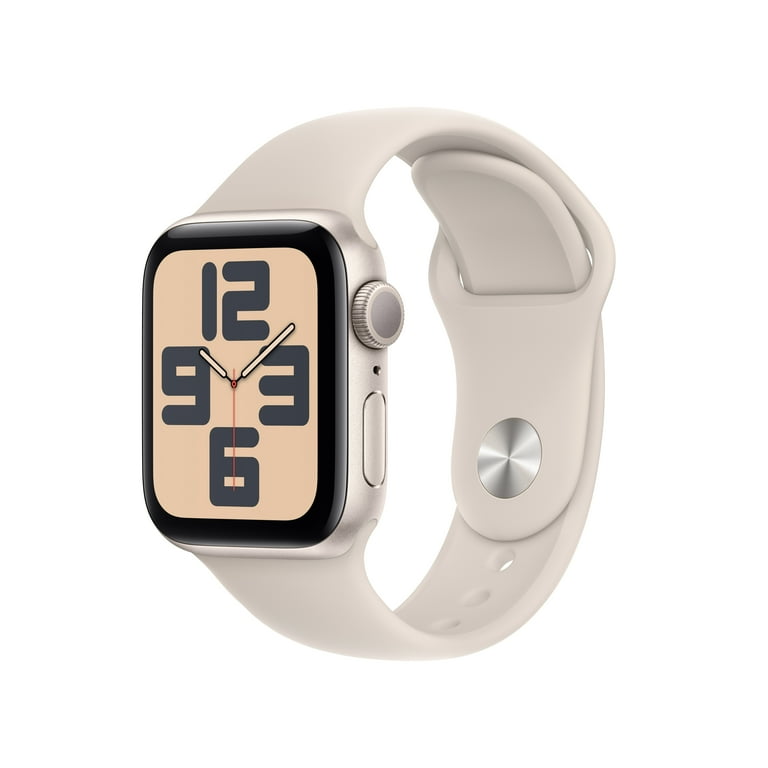Sleep Trackers with Heart Rate Monitor are changing how we manage sleep and health in real-time. Ever wondered what your heart is doing while you sleep?
These smart devices can tell you not just how long you slept but how your body behaved during rest. Can heart rate tracking really lead to better sleep quality?
Yes, it can. Devices like the Fitbit Charge 6, Oura Ring, and Garmin Venu 3 monitor heart rate to detect stress, recovery, and sleep stages. Renowned sleep scientists like Dr. Michael Breus say heart rate variability (HRV) is a key metric in understanding true sleep efficiency.
Still curious if your current tracker is giving you enough data? Or are you ready to explore the best heart rate-based sleep trackers in today’s market? Stick around—we’re about to break down the top picks and how they can transform your nightly rest.
Introduction to Sleep Trackers With Heart Rate Monitoring
Sleep trackers with heart rate monitors are gaining popularity. They help you understand your sleep patterns. These devices can improve your overall health and well-being. Let’s explore the world of sleep trackers.
Importance Of Sleep
Sleep is essential for our health. It helps our body repair itself. Quality sleep boosts the immune system. It enhances memory and learning. Poor sleep leads to various health issues. These include obesity, diabetes, and heart disease. A good sleep routine is crucial for a healthy life.
How Sleep Trackers Work
Sleep trackers monitor your sleep stages. They use sensors to detect movement and heart rate. These devices collect data while you sleep. They analyze your sleep cycles, such as light sleep, deep sleep, and REM sleep. This data helps you understand your sleep quality.
| Feature | Description |
|---|---|
| Heart Rate Monitoring | Tracks your heart rate throughout the night. |
| Sleep Stages | Identifies different stages of sleep. |
| Sleep Duration | Measures total sleep time. |
| Movement Tracking | Detects body movements and disturbances. |
Most sleep trackers sync with your smartphone. This allows easy access to your sleep data. You can view detailed reports and trends. This information helps you make informed decisions about your sleep habits.
- Wearable sleep trackers, like smartwatches and fitness bands.
- Non-wearable options like under-mattress sensors.
Choosing the right sleep tracker depends on your preferences. Consider features like accuracy, comfort, and ease of use. With the right sleep tracker, you can improve your sleep and overall health.

Credit: www.amazon.com
Features Of Sleep Trackers
Sleep trackers are incredible devices. They help you understand your sleep better. These gadgets come with a lot of features. Let’s explore some of the key features of sleep trackers.
Heart Rate Monitoring
Heart rate monitoring is a crucial feature. It tracks your heartbeats per minute (BPM). A steady heart rate indicates good sleep quality. Sudden changes in heart rate can signal disturbances.
Sleep trackers use sensors to monitor your heart rate. They provide real-time data. This data helps in assessing overall health. Heart rate monitoring is essential for understanding your sleep patterns.
Sleep Stages Analysis
Sleep stages analysis is another vital feature. It divides your sleep into different stages. These stages include light sleep, deep sleep, and REM sleep. Each stage has its importance.
Light sleep is the initial stage. Deep sleep is when your body repairs itself. REM sleep is when you dream. Tracking these stages helps improve your sleep quality.
Many sleep trackers offer detailed sleep stage analysis. They show how much time you spend in each stage. This information helps in identifying sleep issues. You can make necessary adjustments for better sleep.
Benefits Of Heart Rate Monitoring
Heart rate monitoring with sleep trackers offers many benefits. These benefits are crucial for improving your overall well-being. From enhancing sleep quality to providing vital health insights, these devices are game-changers.
Improved Sleep Quality
Sleep trackers with heart rate monitors can improve your sleep quality. They provide data on your heart rate during sleep. This information helps you understand your sleep patterns better.
Knowing your heart rate can help you identify periods of restlessness. It can also show how long you are in each sleep stage. With this data, you can make changes to your lifestyle. These changes will help you sleep better and wake up refreshed.
Health Insights
Heart rate monitoring offers valuable health insights. These insights can help you understand your body’s needs better.
Here are some key health insights you can gain:
- Stress Levels: High heart rates can indicate stress.
- Fitness Levels: Track your heart rate during exercise to gauge fitness.
- Heart Health: Identify irregular heartbeats and other issues.
By tracking your heart rate, you can detect early signs of health problems. This proactive approach can lead to better health management.
Consider using a sleep tracker with a heart rate monitor. It can provide essential data for improving your sleep and health.
Popular Sleep Trackers
Sleep trackers with heart rate monitors have become essential gadgets. These devices help you understand your sleep patterns. They also monitor your heart rate. This ensures you get comprehensive health insights. Let’s dive into some popular sleep trackers.
Top Brands
- Fitbit – Renowned for its accuracy, intuitive interface, and strong battery life.
- Garmin – Offers advanced health metrics and rugged durability.
- Withings – Stylish and health-focused, known for medical-grade sleep data.
- Apple – Seamless integration with iOS and advanced health features.
- Samsung – Combines reliable sleep tracking with innovative health sensors.
- Oura – Popular for its ring form factor and deep recovery insights.
- Whoop – Focuses on recovery, strain, and sleep with continuous monitoring.
Key Models
| Model | Brand | Features |
|---|---|---|
| Fitbit Charge 6 | Fitbit | Heart rate monitor, sleep stage tracking, stress management, ECG, Fitbit AI sleep coaching |
| Garmin Vivosmart 5 | Garmin | Pulse Ox sensor, advanced sleep metrics, Body Battery™ energy tracking |
| Withings Sleep Mat | Withings | Sleep apnea detection, heart rate tracking, under-mattress installation |
| Apple Watch Series 9 | Apple | Heart rate monitor, sleep tracking with sleep stages, blood oxygen, ECG |
| Samsung Galaxy Watch 6 | Samsung | Sleep score, SpO₂ monitoring, skin temperature sensor, HR monitoring |
| Oura Ring Gen 3 Horizon | Oura | Sleep score, readiness score, heart rate variability, SpO₂ sensing |
| Whoop 4.0 | Whoop | Sleep performance tracking, recovery insights, no screen distraction |
Choosing The Right Sleep Tracker
Finding the perfect sleep tracker can be a game-changer for your health. With so many options available, it’s essential to select one that meets your needs. Let’s dive into the factors you should consider and explore some budget-friendly options.
Factors To Consider
- Accuracy: Ensure the tracker provides reliable heart rate and sleep data.
- Comfort: The device should be comfortable to wear all night.
- Battery Life: Look for a tracker with long battery life.
- Compatibility: Check if it syncs with your smartphone or health apps.
- Features: Some trackers offer additional features like step counting and GPS.
Budget Options
If you’re on a budget, you can still find effective sleep trackers with heart rate monitors. Below are a few options:
| Brand | Model | Price (Approx.) | Key Features |
|---|---|---|---|
| Fitbit | Inspire 3 | $99 | Heart rate monitor, sleep stages, SpO₂ sensor, 10-day battery life |
| Xiaomi | Mi Band 8 | $45 | 24/7 heart rate tracking, sleep and nap analysis, 16-day battery, AMOLED display |
| Garmin | Vivosmart 5 | $129 | Advanced sleep monitoring, Pulse Ox, Body Battery™, stress tracking |
| Amazfit | Band 7 | $50 | Sleep stages, heart rate, blood oxygen monitoring, 18-day battery life |
| Honor | Band 7 | $40 | Heart rate monitor, sleep tracking, SpO₂, lightweight design |
Each of these options provides essential tracking features without breaking the bank. Choose the one that best fits your needs and budget.
Using Sleep Trackers Effectively
Using sleep trackers effectively can greatly improve your sleep quality. To get the most out of your sleep tracker, you need to understand how to set it up and interpret the data it provides. Below, we will guide you through the steps for setting up your device and interpreting data.
Setting Up Your Device
First, ensure your sleep tracker is fully charged. Then, download the companion app on your smartphone. The app will help you sync your device and manage settings. Follow these steps to set up your sleep tracker:
- Open the app on your phone.
- Follow the on-screen instructions to pair the device.
- Set up your profile with accurate personal information.
- Adjust settings such as sleep goals and notifications.
- Wear your tracker snugly on your wrist before bed.
Proper setup ensures accurate data collection. This includes heart rate and sleep patterns.
Interpreting Data
Interpreting the data from your sleep tracker can help you understand your sleep habits. The data usually includes various metrics such as sleep stages, heart rate, and sleep duration. Here’s a breakdown of these key metrics:
| Metric | Description |
|---|---|
| Sleep Stages | Tracks light, deep, and REM sleep stages. |
| Heart Rate | Monitors your heart rate throughout the night. |
| Sleep Duration | Measures the total hours of sleep. |
To make sense of the data, look for patterns over time. For instance, a consistently high heart rate might indicate poor sleep quality. Aim for regular sleep patterns and make adjustments as needed. Small changes can lead to better sleep and improved health.
Common Issues And Solutions
Sleep trackers with heart rate monitors are popular for health tracking. They help users understand sleep patterns and heart health. But, they face common issues. Here’s how to address them.
Accuracy Concerns
Many users worry about the accuracy of their sleep trackers. Factors like device placement and sensor quality affect results. Here are some solutions:
- Wear the tracker snugly on your wrist.
- Update the device firmware regularly.
- Ensure the sensor area is clean.
- Avoid wearing other electronic devices nearby.
These steps improve the precision of your sleep and heart rate data.
Technical Troubleshooting
Technical issues can frustrate users. These problems may include sync failures, app crashes, or battery issues. Follow these steps to resolve them:
- Restart the device and app.
- Check for software updates.
- Ensure Bluetooth is enabled and working.
- Re-pair the tracker with your phone.
- Charge the device fully.
If these steps don’t help, contact customer support. They offer further assistance.
Below is a table summarizing common issues and solutions:
| Issue | Solution |
|---|---|
| Accuracy Concerns | Wear snugly, update firmware, and clean the sensor |
| Sync Failures | Restart devices, check Bluetooth, re-pair |
| App Crashes | Update the app, restart the phone |
| Battery Issues | Charge fully, check for updates |
Addressing these issues ensures better performance of your sleep tracker.

Credit: www.walmart.com
Future Of Sleep Tracking
The future of sleep tracking is bright and promising. Advanced technologies are paving the way for more accurate and insightful sleep data. Sleep trackers with heart rate monitors are at the forefront of this evolution.
Technological Advancements
Sleep trackers are getting smarter every day. Artificial intelligence (AI) and machine learning (ML) are revolutionizing sleep data analysis.
- AI Algorithms: AI algorithms provide personalized sleep insights. They analyze your sleep patterns and suggest improvements.
- ML Models: ML models predict future sleep trends. They help you adjust your habits for better sleep.
- Wearable Sensors: Wearable sensors are more accurate. They can track your heart rate and breathing patterns seamlessly.
Potential Improvements
There are several potential improvements in sleep tracking technology. These advancements aim to enhance user experience and data accuracy.
- Battery Life: Future sleep trackers will have longer battery life. This ensures they can track sleep without interruptions.
- Comfort: Devices will be more comfortable to wear. This encourages users to wear them consistently.
- Integration: Future trackers will integrate with other health apps. This provides a comprehensive view of your health.
The future of sleep tracking is exciting. These technological advancements and potential improvements will change how we understand and improve our sleep.

Credit: www.walmart.com
Frequently Asked Questions
What Is The Best Device To Monitor Heart Rate While Sleeping?
The best device to monitor heart rate while sleeping is a smartwatch with sleep tracking features, like the Apple Watch or Fitbit. These devices offer accurate heart rate monitoring and detailed sleep analysis. They are user-friendly and widely recommended for their reliability.
What Is The Best Fitness Tracker For Sleep And Heart Rate?
The Fitbit Charge 6 excels in tracking sleep and heart rate. It offers detailed insights and a user-friendly interface.
Does Fitbit Track Sleep And Heart Rate?
Yes, Fitbit tracks both sleep and heart rate. It monitors sleep stages and provides detailed heart rate data throughout the day.
Are Sleep Trackers Worth It?
Yes, sleep trackers can be worth it. They provide insights into sleep patterns and help improve sleep quality. Accurate data helps identify issues and track progress over time. Many users find them beneficial for better sleep management.
Conclusion
Sleep trackers with heart rate monitors offer valuable insights into your sleep patterns and overall health. They help improve sleep quality and monitor heart health. Investing in one can lead to better rest and enhanced well-being. Choose a sleep tracker that meets your needs for a healthier lifestyle.

A passionate tech blogger and the founder of Best Tech View, a dynamic platform dedicated to all things technology. With a keen interest in the tech, Ahmad strives to provide insightful and engaging content on the latest tech trends, and breakthroughs.
